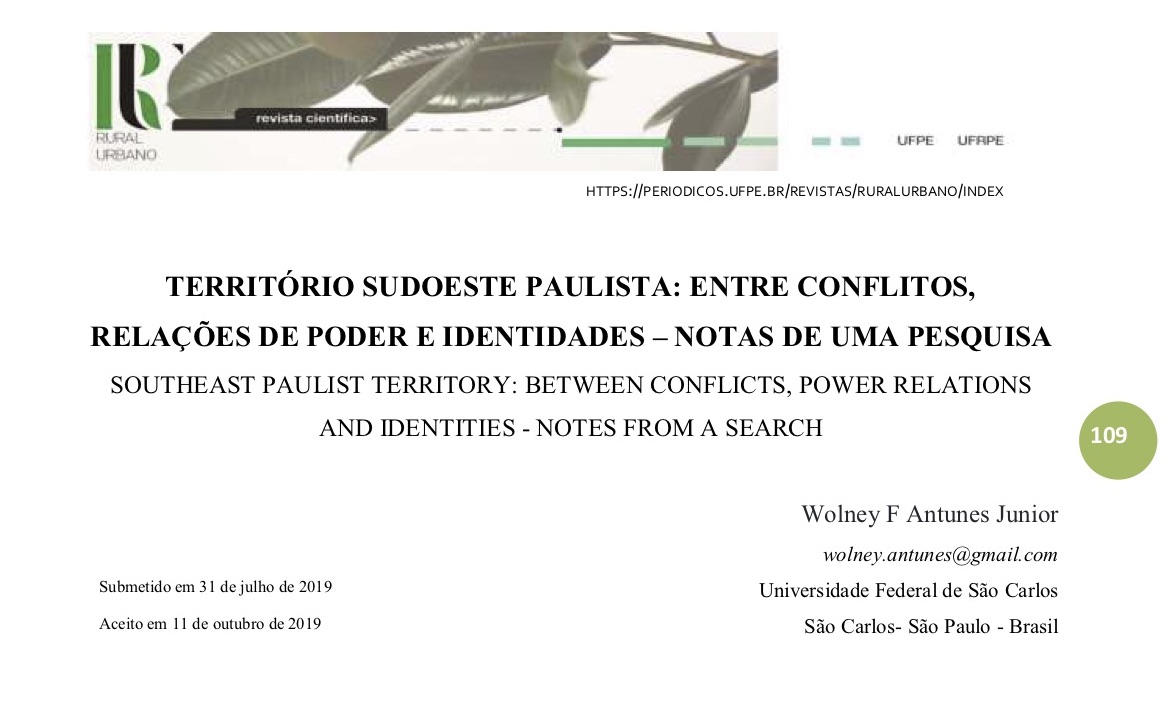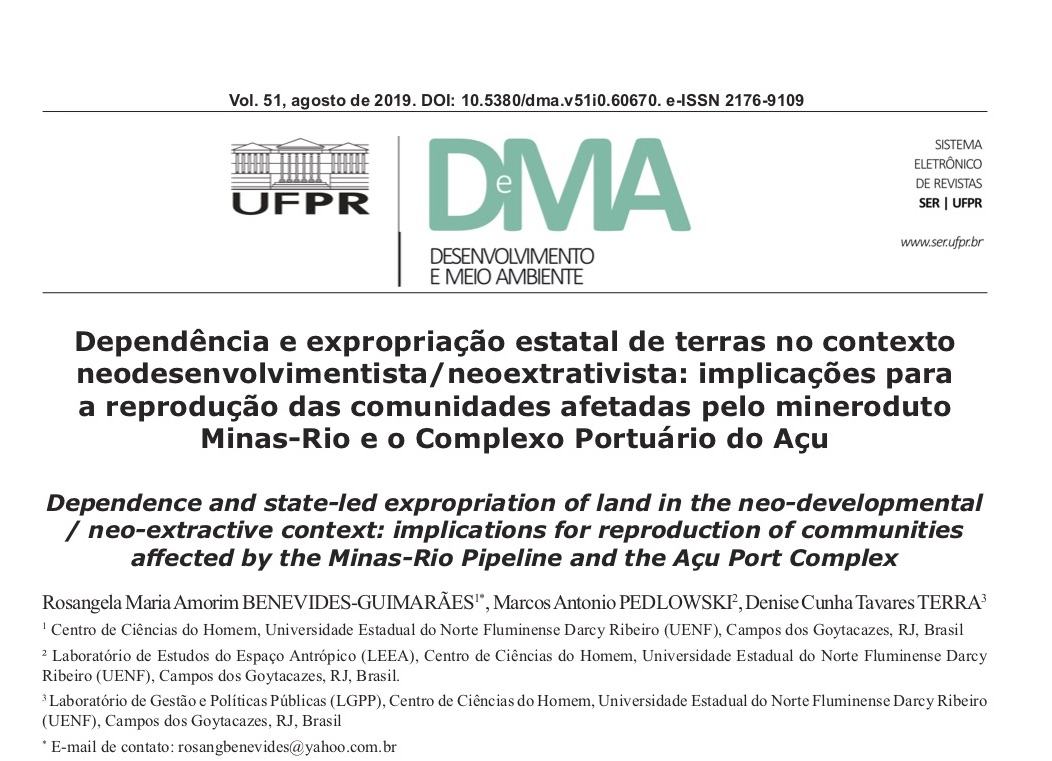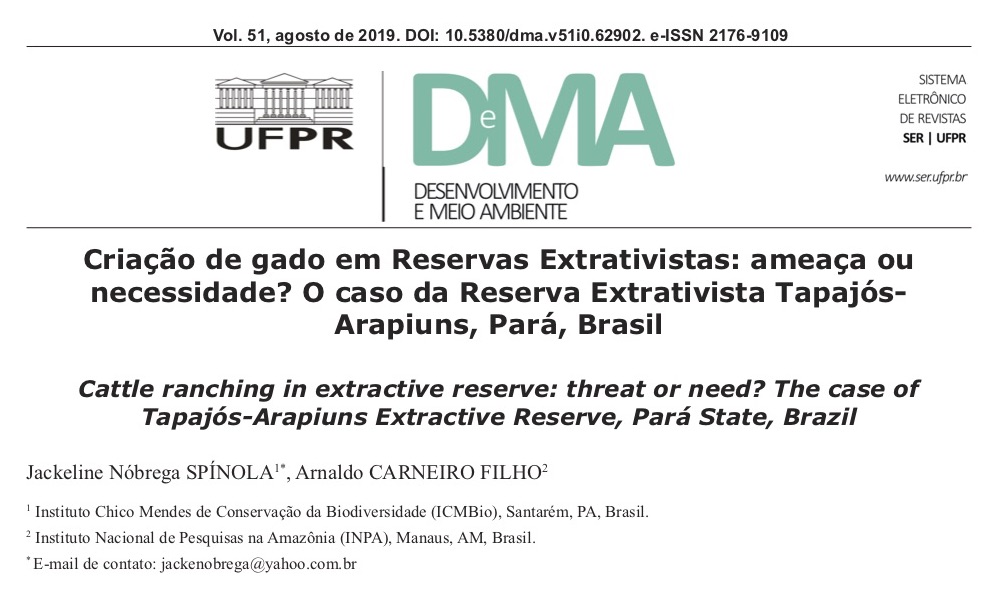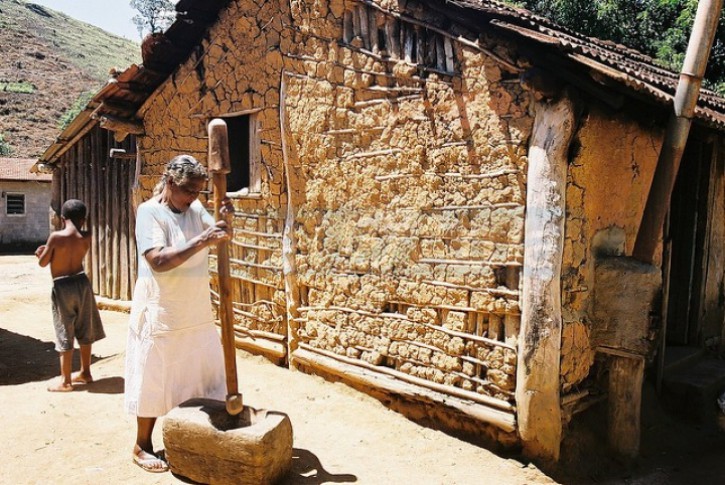indústrias extrativas
AGROVOC URI:
Dependência e expropriação estatal de terras no contexto neodesenvolvimentista/neoextrativista:
Com 1.121 desapropriações para a construção do mineroduto Minas-Rio e 1,5 mil famílias desapropriadas para a construção do Complexo Portuário do Açu, adicionando o impacto em sistemas aquáticos, com degradação, aumento da demanda, salinização e suspensão do abastecimento público por despejos de minério de ferro, esses grandes empreendimentos produzem efeitos socioambientais deletérios.
Criação de gado em Reservas Extrativistas:
O desenvolvimento da atividade pecuária dentro de Reservas Extrativistas na Amazônia tem sido motivo de polêmicas e debates inflamados na área ambiental desde o estabelecimento da Lei do SNUC. O histórico do movimento extrativista teve nos empates sua principal bandeira de luta, como estratégia de combate ao avanço da fronteira agropecuária. Independentemente dos avanços do movimento, é fato que a pecuária bovina se configurou, ao longo dos últimos 20 anos, como o uso predominante nas áreas desmatadas na Amazônia, inclusive dentro das Reservas Extrativistas.
A LUTA PELA EFETIVAÇÃO DOS DIREITOS ÉTNICOS E TERRITORIAIS DAS COMUNIDADES QUILOMBOLAS EM CONFLITOS SOCIOAMBIENTAIS
Frontier Capitalism and Politics of Dispossession in Myanmar: The Case of the Mwetaung (Gullu Mual) Nickel Mine in Chin State
Since 2010, Myanmar has experienced unprecedented political and economic changes described in the literature as democratic transition or metamorphosis. The aim of this paper is to analyze the strategy of accumulation by dispossession in the frontier areas as a precondition and persistent element of Myanmar’s transition. Through this particular regime of dispossession – described as frontier capitalism – the periphery is turned into a supplier of resource revenues to fuel economic growth at the center.
Gendered experiences of land confiscation in Myanmar: Insights from eastern Bago Region and Kayin State
ABSTRACTED FROM EXECUTIVE SUMMARY: The aim of this report is to improve understanding of how to mainstream gender sensitivity into actions that seek to support communities to address land confiscations. It presents the synthesis of two two-day workshops with a group of 12 men and 12 women affected by land confiscations from Taungoo and Htantabin townships in eastern Bago Region and Thandaunggyi Township in Kayin State. Therefore, it is important to note that the small sample may not necessarily be representative of gendered experiences of land confiscation elsewhere in Myanmar.
Large-Scale Land Acquisitions for Agricultural Development in Myanmar: A Review of Past and Current Processes
WEB INTRODUCTION: The literature on agricultural large-scale land acquisition in Myanmar is rather fragmented and consists mainly of case studies. While these provide key insights into particular stories, they often fail to identify the main patterns and trends at country level. To fill such gaps, this thematic study aims to present an updated synthesis of the genealogy, institutional complexity and the ins and outs of large-scale land acquisition processes for agricultural development in Myanmar.
Linking climate change strategies and land conflicts in Cambodia: Evidence from the Greater Aural region
This paper investigates how climate change strategies and resource conflicts are shaping each other in the Greater Aural region of western Cambodia. Agro-industrial projects linked to climate change goals are reshaping both social and ecological dynamics, by altering patterns of access to land and water resources as well as the nature of the resources themselves. Using a landscape perspective, we investigate these social and ecological changes occurring across space and time.
“Nothing for Our Land”: Impact of Land Confiscation on Farmers in Myanmar
ABSTRACTED FROM SUMMARY: Disputes over land remain one of the central challenges in Myanmar’s evolving reform process. Land confiscations and forced evictions were a major feature of decades of military rule and internal armed conflict. Small farmers bore the brunt as government officials, military commanders, and their cronies seized land for personal and institutional enrichment; authorities promoted development plans without regard for those affected; and the military and ethnic armed groups took advantage of fighting and displacement to grab vast swathes of territory.
From boomerangs to minefields and catapults: dynamics of trans-local resistance to land-grabs
This paper explores the political processes that activists engaged in contesting land grabbing have triggered to connect claims across borders and to international institutions, regimes and processes. Through a review of cases of land-grab resistance that have led to project cancelation or suspension, I argue that contextual elements of the land grab and shifting geopolitics highlight the need for adaptation and refinement of models of transnational advocacy, historically structured in North–South patterns.
From Confrontation to Mediation: Cambodian Farmers Expelled by a Vietnamese Company
Concessions granted to investors in Cambodia have generated a deep sense of insecurity in rural forested areas. Villagers are not confined to a passive “everyday resistance of the poor,” as mentioned by James Scott, insofar as they frequently engage in frontal strategies for recovering land. Such has been the case in the northeastern provinces, where indigenous livelihoods are recurrently threatened by foreign and national companies. But what happens when a land conflict ends up in a stakeholder dialogue?
“They Turn Us into Criminals”: Embodiments of Fear in Cambodian Land Grabbing
Our efforts to research the land grab in Cambodia were thwarted on multiple fronts. This article emerges from our collective experiences of fear and intimidation to reconsider land grabs as a project that produces fear and is reliant on fear. Recent literature on resource conflict focuses on acts of physical violence, but for people who live near spaces of land grabs, the everyday is marked by a different kind of violence, an incoherence and pervasive fear that threatens people's sense of self and the entire social fabric of their worlds.





